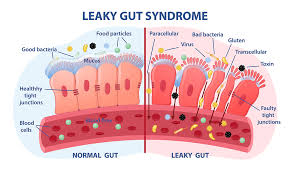The Microbiome and Its Impact on Autism: Understanding the Gut-Brain Connection
As research into autism spectrum disorder (ASD) continues to evolve, one intriguing area of study is the role of the microbiome—the trillions of microorganisms living in our guts. Emerging evidence suggests that the health of our microbiome may have significant implications for children with autism, particularly in relation to gut disorders and neurological development. This blog explores the connection between the microbiome and autism, emphasizing the importance of detailed stool analyses, checking for parasites, and understanding the gut-brain relationship.
What is the Microbiome?
The microbiome refers to the vast community of bacteria, viruses, fungi, and other microorganisms that inhabit our digestive systems. These microorganisms play a crucial role in digestion, immunity, and even brain function. In children with autism, studies have indicated that there may be an imbalance in the microbiome, often referred to as dysbiosis. This condition can lead to gastrointestinal issues that are commonly reported in children with ASD, such as constipation, diarrhea, and abdominal pain.


Importance of Detailed Stool Analysis
A detailed stool analysis is a valuable tool for understanding the microbiome's composition and function. By examining stool samples, healthcare providers can identify bacterial imbalances, inflammation markers, and other indicators of gut health. This analysis can reveal whether a child is experiencing dysbiosis, which may contribute to their autism-related symptoms.
For instance, a stool test might show an overgrowth of harmful bacteria or a deficiency of beneficial ones. Identifying these imbalances can guide dietary and therapeutic interventions aimed at restoring gut health. Parents of children with autism are encouraged to discuss stool analysis with their healthcare provider as part of a comprehensive approach to treatment.
Checking for Parasites
Another crucial aspect of gut health is the presence of parasites. Many children with autism may have undiagnosed parasitic infections that can further complicate their gastrointestinal symptoms and overall well-being. Common parasites include Giardia, Blastocystis, and various types of worms. These organisms can disrupt the gut microbiome, leading to inflammation and digestive issues.
Testing for parasites through stool analysis is essential, as treating these infections can significantly improve gut health and potentially alleviate some autism-related symptoms. Parents should be vigilant about gastrointestinal symptoms in their children and consider discussing parasite screening with their healthcare provider
Leaky Gut and Its Implications
One condition often associated with dysbiosis is "leaky gut," where the intestinal lining becomes more permeable than normal. This permeability allows toxins and undigested food particles to enter the bloodstream, triggering inflammation and immune responses. In children with autism, leaky gut may contribute to behavioral and neurological symptoms.
Conclusion
The relationship between the microbiome and autism is a complex and rapidly evolving field of study. Understanding the importance of gut health, conducting detailed stool analysis, checking for parasites, and recognizing the implications of leaky gut can be vital steps for parents seeking to support their children with autism. While more research is needed, there is growing hope that addressing gut health may lead to improved outcomes for children with ASD. As always, it’s essential for parents to work closely with healthcare professionals to develop tailored strategies that best support their child's unique needs.
By prioritizing gut health, we may unlock new avenues for understanding and improving the lives of children with autism, paving the way for a brighter future.











